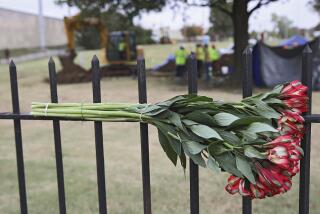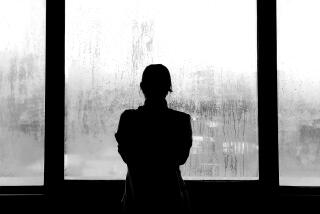Old age, death ... and dying
In theory, I approve of death for the old. You live as long as you can, and then you die. I accept that the balance of nature requires the inevitability of death -- and that war, infant/childhood/teen diseases, accidents and murder aside, the system works out to be essentially fair.
But today’s news from home was that my mom’s friend, Bernice, woke up to find Marty (her husband of nearly 60 years) lying dead beside her. That was a shock, not just for poor Bernice before she’d even had her morning coffee, but for everyone.
True, Marty was 80-plus and had always played fast and loose with his diabetes, but still. He was one of my parents’ close pals, and he had the faded photos of their cheesy luau vacations to prove it. Marty wasn’t the first of their friends to die. He wasn’t even among the first. But after awhile, enough is enough, and you want to say, “Cut it out, already! What are you, lemmings?”
That’s the downside of living a long time. My parents go to a lot of funerals. They’ve become eulogy connoisseurs. They know where the bathrooms are at the funeral homes their crowd favors. They get a lot of horrible phone calls. Some expected, others totally shocking.
“Actually,” my mom says, matter-of-factly, “it gets less shocking.”
She reminds me that last week it was Phyliss; before that, Sol’s sister. And now Herman is cueing up.
I live across the country from my family, so sometimes I can’t even remember for sure who’s alive and who isn’t back there. The plus side is that I am spared all but the most essential funerals.
One thing I’ve learned, though, watching my tribe die off, is that there’s no tidy line. One guy can be circling the drain, round and round, when -- zip! -- someone else, totally unexpected, darts out of place and takes cuts. Some of the most unlikely people end up dying that way, all out of order.
But my parents and their remaining friends have kept patiently in step, and, thanks to medical advances, health insurance, careful diet and exercise, they are right on schedule, arriving all together at the edge of the last cliff.
I hear the resignation in my mother’s voice. I can picture her shrug, “Even Sylvia, so slim with all her yoga and vegetarianism.”
I want to say, “Listen, Ma, just because everyone’s doing it ... I mean, if all your friends were smoking crack ... .”
But in their mid-80s to early 90s, with more friends and siblings on the other side than on this one, it’s hard not to see what’s coming. My father is basically bionic, with multiple bypasses and a pacemaker and whatnot. He spends a big part of his mornings washing down a multitude of pills from little brown jars on the counter. But in spite of the meds, the violin fell out of his hand during a concert a few years ago, hinting that some fairly significant aspects of his life are over.
My mother, once a great reader, is practically blind.
My father-in-law is in hospice and has even stopped using his hearing aids. He says he found the dying experience interesting at first, but now that he’s feeling weak, he likes it a lot less. I half expect him to give up on the whole thing and return to his former health. Death doesn’t sit right on him; it seems phony, like he’s wearing a French beret or a goofy tie.
But none of these people are old the way old people seemed old when I was young. These guys are mostly still themselves, and they look nothing like my grandparents did to me back then. While my grands and great-grands looked dried out and dusty in a useless, used-up kind of way, my parents and their peers look like they just grabbed an old picture of themselves, crunched it into a ball, then smoothed it back out a bit.
My own knees crackle at the thought of sitting on the floor, my hands ache in the morning, and I pee whenever I cough. The history of my species -- in fact, of all living things -- gives me reason to suspect that these symptoms of age are not likely to reverse. My husband is wearing not one but two pair of glasses to read the paper beside me. Sometimes reality is just plain hard to deny.
But getting old is one thing; dying is even one thing (because you’re still alive while you do it). But going all the way and actually being dead is totally another. I mean, it happens to everyone, as I know it must. But Marty?
Amy Goldman Koss is the author, most recently, of the teen novel “Side Effects.”
More to Read
A cure for the common opinion
Get thought-provoking perspectives with our weekly newsletter.
You may occasionally receive promotional content from the Los Angeles Times.






